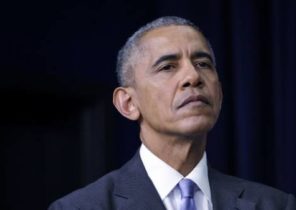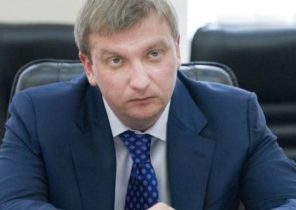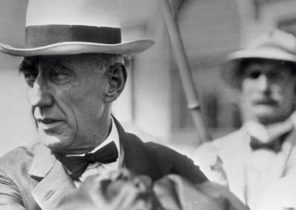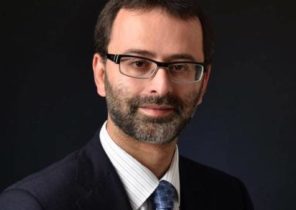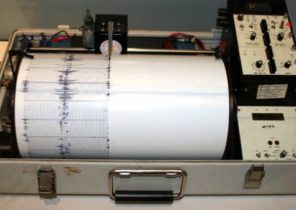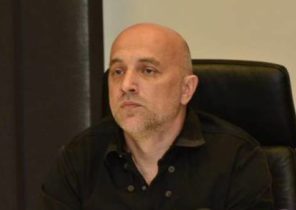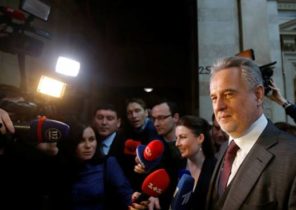
In the film “Bashar, me or chaos” directed by Antoine Vitkin considering the unusual fate of the Syrian leader.
Terrorism? It is to him. The immigration crisis. To him, too. Stability in the middle East? Again to him. Putin? And again to him. A bloody dictator in the form of “top-Manager”, Bashar al-Assad is at the origin of almost all the tragedies under our Western latitudes after 2011, when Syria started to gain momentum rebellion. But Assad will not go away. It still sits surrounded by generals and bureaucrats from the security services at the presidential Palace, which, like eagles nest, located on the heights above the Syrian capital. A tyrant with a benevolent face calmly demonstrates to the world a provocative insurance: me or chaos.
Crowned with laurels Director Antoine Witkin (Antoine Vitkine), a frequent visitor behind the scenes of international politics, made this grim slogan in the title of their documentary about the unusual fate of Bashar al-Assad. The story is littered with mass murders, torture and more dirty diplomatic games. The film relies on stories of high-ranking officials who at one time or another had to deal with the Syrian dictator, and takes the form of a fairy tale in tones of real politics and with depressing morals, where crime is at the end and should not be punished. The documentary vitkina seeks to show the cunning of the dictator on the one hand and simplicity of the great powers on the other.
TéléObs what was this movie?
Antoine Vitkin: It continues the series of my past films about the former Libyan dictator Muammar Gaddafi the West. Nevertheless, I immediately took it. I was one of those many people who thought that Assad would fall quickly after the uprising in 2011. But then, in 2015, had to admit the fact: Assad wins the war. Then I came up with the idea of having to make a film about it because our eyes is history. I wanted to represent the Syrian, Russian and Western point of view about this man. Now the West considers it a bloody dictator, but it was not always so. The main purpose of my film was to raise the question about what Assad thinks about us, and what it symbolizes the end of Western illusions about the impact on the course of world history and the rule of morality.
Is the history of diplomatic disappointment?
— Partly, Yes. The story of Assad and the West is played out in two times. Initially, when he replaced his father Hafez Assad in 2000, the great powers were built on his account of justifiable hope.
Assad the way Westernization leader. So then, the West imagined that the two years he studied in London at the ophthalmologist and married to a modern looking English Syrian, is open for the present leader. Everyone forgot that he grew up in Damascus and was brought up as the son of a dictator.
— The frustration was comparable with the errors?
— Western countries thought Assad will go for an Alliance with the US and Europe and will help to resolve many of the problems in the middle East. It is a small country located on geostrategic crossroads between the Sunni regimes of the Persian Gulf, Turkey, Lebanon and Israel. Bashar al-Assad was considered a part of the equation for peace in the region. However, the fact that in Damascus, nothing changes, soon came the disappointment. Since 2008 a new generation of leaders, Sarkozy and Obama, once again stood on the side of Assad for the same reasons as in 2000. When in 2011, the country began an uprising, the West had hoped for his failure and thought that polished Westernization leader will not be able to hold on to power. Such arguments are turned into a tragic mistake.
— Bashar al-Assad quite often gives interviews to Western media? Why don’t you asked him?
— I thought this interview would be a dead end. When the French media and politicians going to Damascus, they have a right to only the rhetoric of denial and propaganda. I prefer to give the floor to the regime through the political adviser to the President Busana Shaaban. She says quite openly.
— How to establish contact with such a person?
— First you need to find a good middleman. After several setbacks, I managed to get one entree to Damascus Frenchman to convey my message.
— How do you work in Damascus?
— Of course, I was expecting the capital of this police state like Syria for me will be under surveillance and wiretapping. On the border with Lebanon have you asking for mobile phones and then return them back after some time, maybe after installing “tracker”. But this did not prevent us from working. We even managed to get into the presidential Palace, which is located on the heights and hanging over Damascus, as the eagle’s nest. The Syrians there running is forbidden. It is rarely removed. In itself its geographic location already says a lot about the nature of the regime.
— You give the word, and the former authorities…
Yeah, I had a long conversation with several ex-officials who know the device inside the Syrian authorities, but severed ties with him and now live abroad, mainly in Gulf countries.
— DAIS under the blows of the coalition, and recently, Aleppo was again in the hands of the Syrian army. Bashar al-Assad won?
— He wins. However, he ruled rebuilding the country and is under the control of Russia, Iran and Hizbollah. In some ways a Pyrrhic victory.
To survive the looming strange world it will be as difficult as war, in which he immersed his country to stay in power.
*************************************
Islamic state (DAISH) is a terrorist organization banned in Russia.
